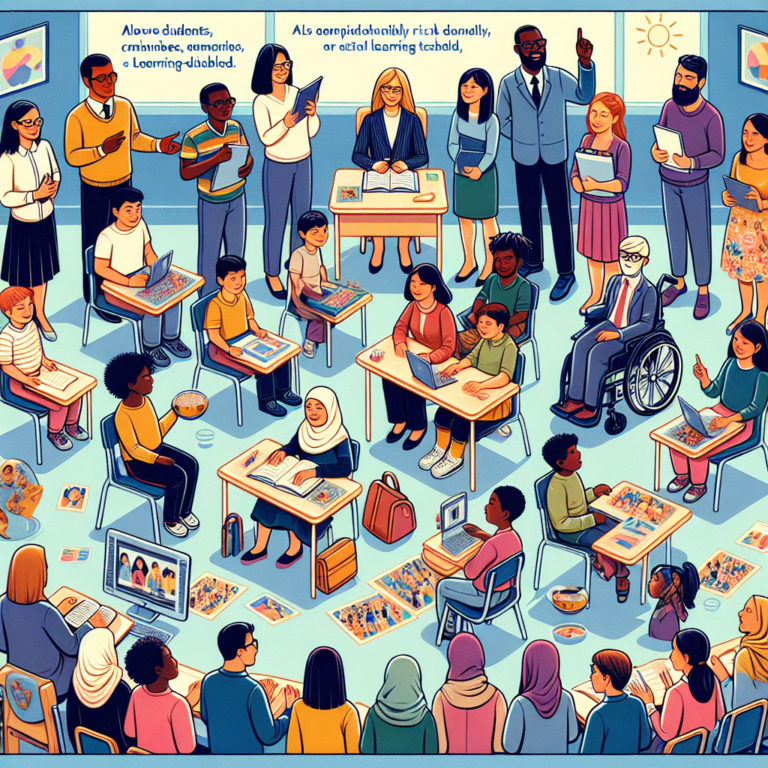
Walking in Their Shoes: The Essential Power of Empathy in Enhancing Interpersonal Bonds
Introduction
Imagine for a moment that you are navigating the complexities of someone else’s life—their struggles, their joys, their day-to-day experiences. This imaginative exercise isn’t just a mental challenge; it’s a pathway to deeper connections and more meaningful relationships. In our fast-paced world, we often overlook the emotional depths of others, focusing instead on our perspectives and experiences. However, the act of "walking in their shoes"—truly empathizing with another person—can be a transformative experience. This article delves into Walking in Their Shoes: The Power of Empathy in Enhancing Interpersonal Bonds, unpacking what empathy is, why it matters, and how it can foster stronger connections in both personal and professional relationships.
Understanding Empathy
Empathy is the ability to understand and share the feelings of another person. It involves more than just sympathy; it’s a genuine attempt to connect with someone else’s emotional experience. According to Dr. Brené Brown, a leading researcher in the field of social connection, empathy is key to building trust and establishing relationships.
The Different Types of Empathy
Empathy can be categorized into three types:
Cognitive Empathy: The ability to understand another person’s perspective intellectually. This might involve recognizing the thoughts and emotions behind someone’s behavior.
Emotional Empathy: Sharing the emotional experience of another person, almost feeling their feelings.
- Compassionate Empathy: This goes beyond understanding; it drives one to take action to help others.
Understanding these types of empathy is crucial for Walking in Their Shoes: The Power of Empathy in Enhancing Interpersonal Bonds.
The Science Behind Empathy
Research shows a fascinating connection between empathy and human interaction. For example, a study published in the journal Nature demonstrated that areas in the brain associated with empathy light up when we observe others in distress. This neural response facilitates emotional connections and helps forge interpersonal bonds.
Table 1: The Neuroscience of Empathy
| Type of Empathy | Brain Region Activated | Function |
|---|---|---|
| Cognitive Empathy | Medial Prefrontal Cortex | Understanding thoughts and feelings |
| Emotional Empathy | Anterior Insula | Feeling the emotional state of others |
| Compassionate Empathy | Ventromedial Prefrontal Cortex | Connecting feeling with action to help others |
The Importance of Empathy in Interpersonal Relationships
Building Stronger Personal Relationships
Personal relationships thrive on understanding and connection. By genuinely attempting to "walk in their shoes," people can develop deeper emotional ties. For instance, when parents practice empathy towards their children, they encourage open communication, leading to stronger family bonds.
Case Study: The Impact of Empathy in Family Dynamics
A case study conducted by the University of California emphasized how empathy plays a crucial role in family relationships. Families that emphasized emotional understanding reported higher levels of satisfaction and lower levels of conflict. By employing techniques like active listening and acknowledging feelings, they nurtured a space where empathy flourished.
Enhancing Professional Relationships
In the workplace, empathy is not just a soft skill—it’s an essential tool for collaboration and leadership. Leaders who exhibit empathy are more effective in inspiring and motivating their teams.
Case Study: Empathy in Customer Service
A global retail company implemented empathy training for its customer service representatives. The training focused on understanding customer emotions and responding with compassion. Results showed a 30% increase in customer satisfaction, demonstrating how Walking in Their Shoes: The Power of Empathy in Enhancing Interpersonal Bonds can yield positive outcomes in business.
Practical Strategies to Cultivate Empathy
1. Active Listening
Active listening involves genuinely paying attention to what the other person is saying. This means putting away distractions and responding appropriately to demonstrate understanding.
2. Open-Ended Questions
Encouraging conversation through open-ended questions helps people feel valued. Questions like “How did that make you feel?” invite deeper dialogue and emotional sharing.
3. Perspective-Taking
To foster empathy, practice envisioning your life from someone else’s perspective. Reflect on how their challenges affect them on a daily basis.
4. Mindfulness
Mindfulness practices can enhance empathy by helping you become more aware of your emotions in response to others. This awareness can lead to more compassionate responses.
The Role of Empathy in Conflict Resolution
Empathy can significantly enhance conflict resolution skills. By understanding the emotions and perspectives of all parties involved, disputes can become ideal opportunities for growth and understanding.
Case Study: Conflict Resolution in Mediation
A study in the Journal of Conflict Resolution highlighted that mediation processes incorporating empathy tended to lead to more amicable solutions. When mediators encouraged participants to share their feelings, they were more likely to find common ground.
The Benefits of Empathy in Society
Creating Inclusive Communities
Empathy fosters understanding across diverse groups, leading to more inclusive communities. When individuals actively aim to "walk in the shoes" of others from different backgrounds, they contribute to reducing prejudice and fostering acceptance.
Promoting Mental Health
Empathy is also linked to mental well-being. Acts of kindness, understanding, and support contribute not just to the recipient’s well-being but also to the giver’s psychological health.
Challenges to Empathy
Despite its numerous benefits, several barriers can impede the practice of empathy.
1. Emotional Burnout
Empathy fatigue can occur, particularly among those in caregiving professions. Being constantly exposed to others’ pain can take a toll on one’s own emotional state.
2. Cultural Differences
Cultural backgrounds often shape the understanding of emotional expressions. Being unaware of these differences can lead to misinterpretations.
3. Scepticism
Some individuals may approach empathy with skepticism, believing others are insincere or manipulative. Overcoming this barrier requires developing trust.
Conclusion
In conclusion, Walking in Their Shoes: The Power of Empathy in Enhancing Interpersonal Bonds is a concept that echoes through every aspect of our lives. From personal relationships to professional environments, the ability to empathize deeply connects us to those around us. Empathy fosters understanding, enhances communication, and builds bridges where barriers once stood.
By actively practicing empathy, we not only enrich our own lives but also contribute to a more compassionate world. Remember, empathy begins with you. Let’s take the step to truly understand and connect with those around us.
FAQs
Q1: What are some practical ways to practice empathy?
A1: You can practice empathy through active listening, asking open-ended questions, ensuring that you show appreciation for others’ feelings, and reflecting on different perspectives.
Q2: Why is empathy considered important in the workplace?
A2: Empathy in the workplace leads to improved team collaboration, higher employee satisfaction, better customer service, and ultimately, stronger overall performance.
Q3: How can I develop better listening skills?
A3: Practice active listening by giving your full attention to the speaker, maintaining eye contact, acknowledging their words, and offering thoughtful responses.
Q4: What if I struggle with empathy?
A4: If you struggle with empathy, consider seeking help from a mental health professional or engaging in self-reflection activities to explore your feelings toward others.
Q5: Can empathy be taught?
A5: Yes, empathy can be cultivated through training and practice. Educational programs focusing on emotional intelligence often include components that enhance empathetic abilities.
In exploring Walking in Their Shoes: The Power of Empathy in Enhancing Interpersonal Bonds, we uncover not just a skill, but an essential element in nurturing our connections with others. It’s time we all took a step towards understanding and compassion. The world would be a better place for it.















